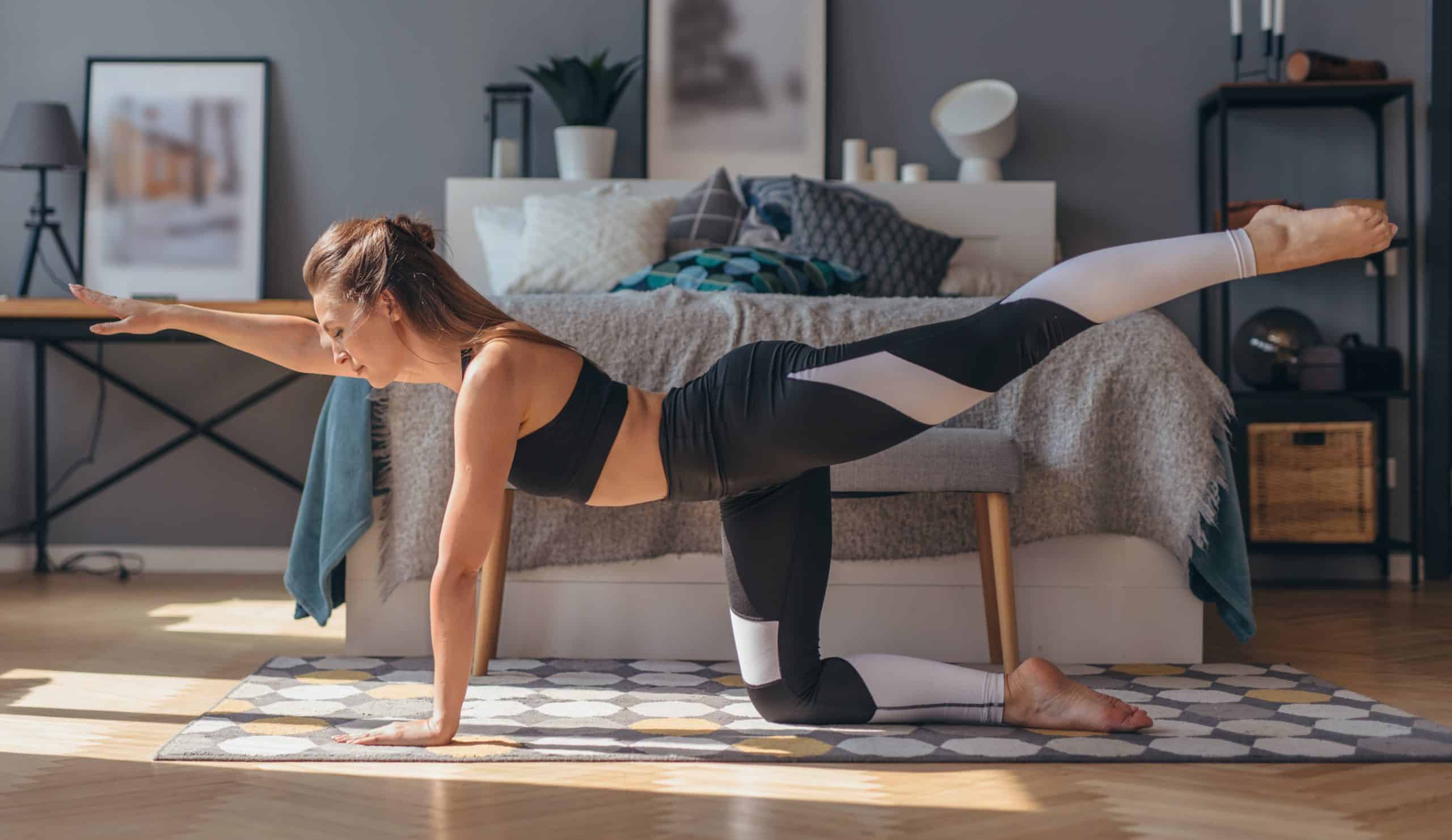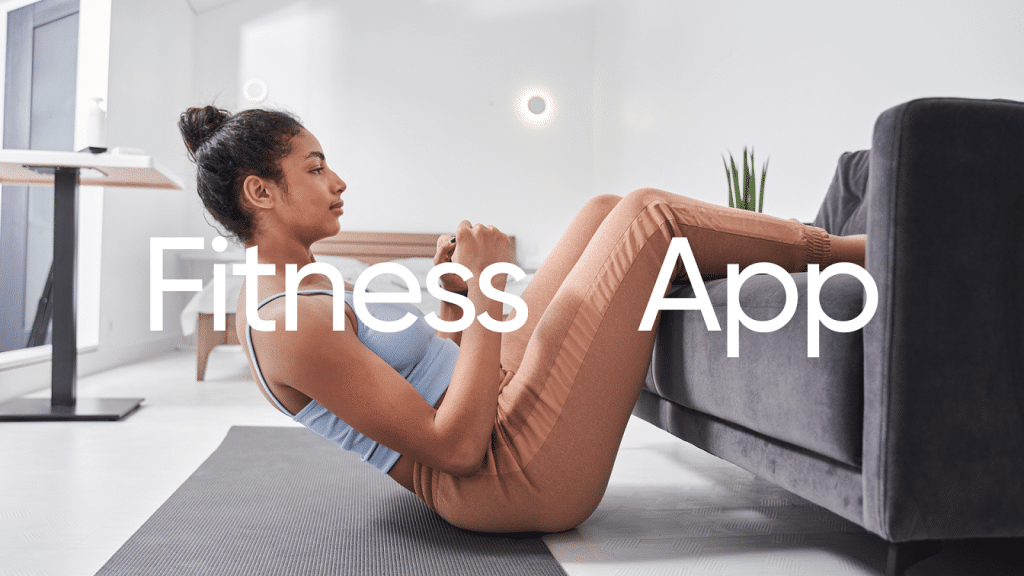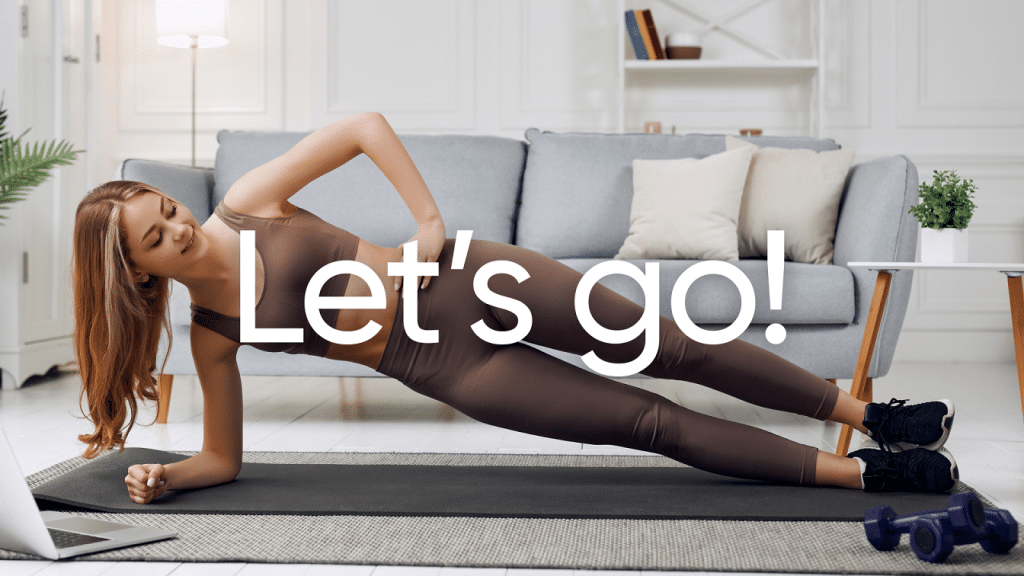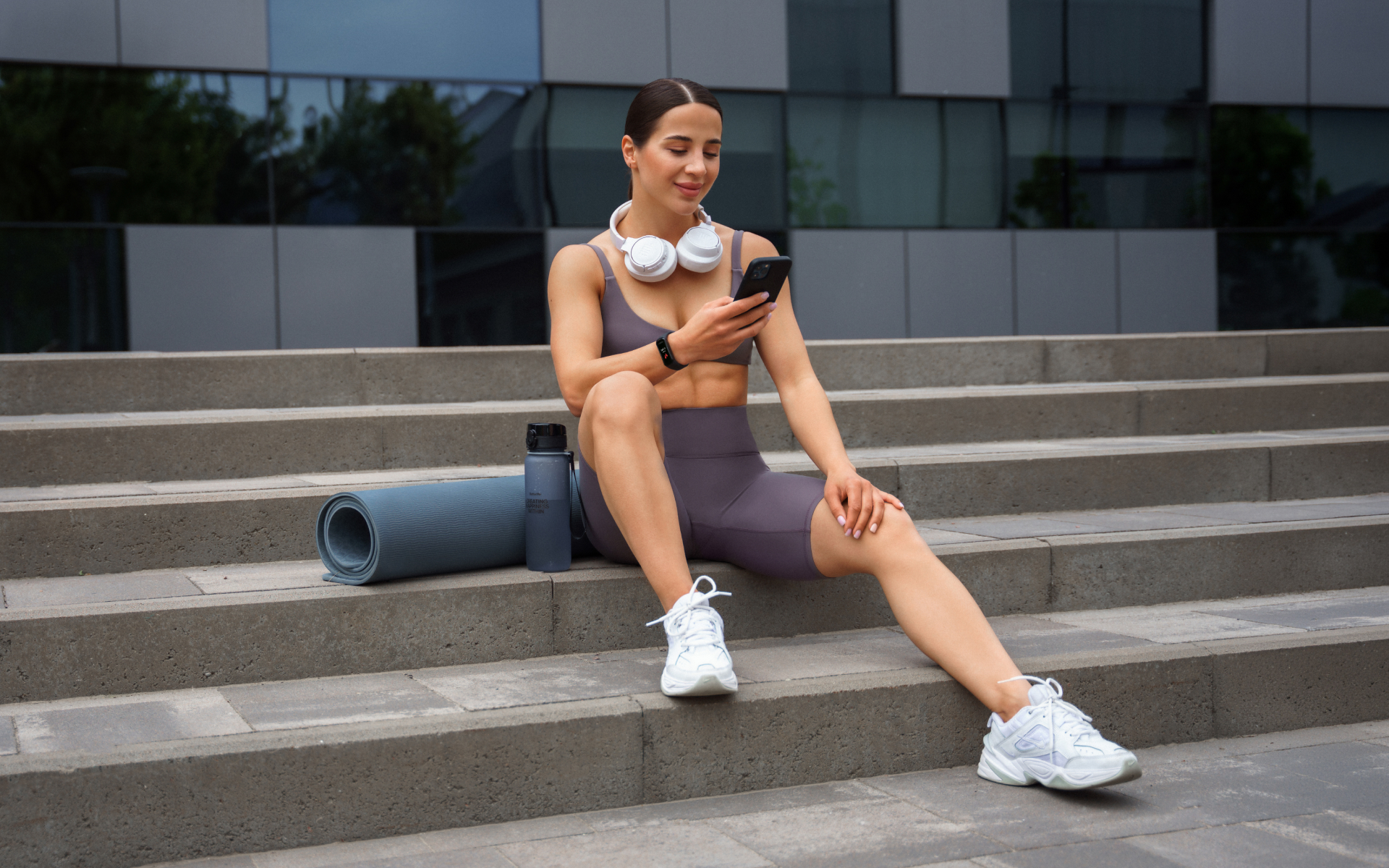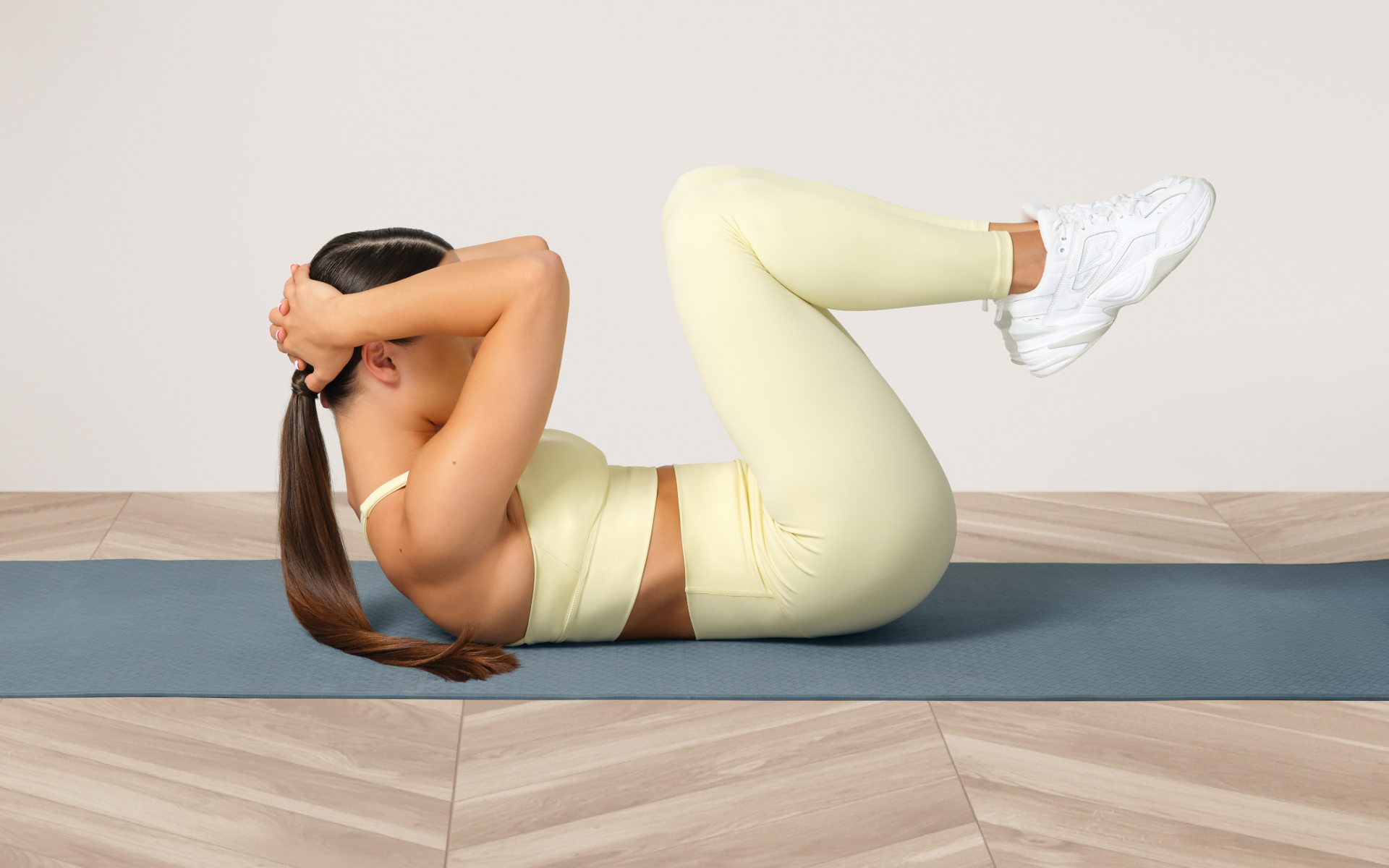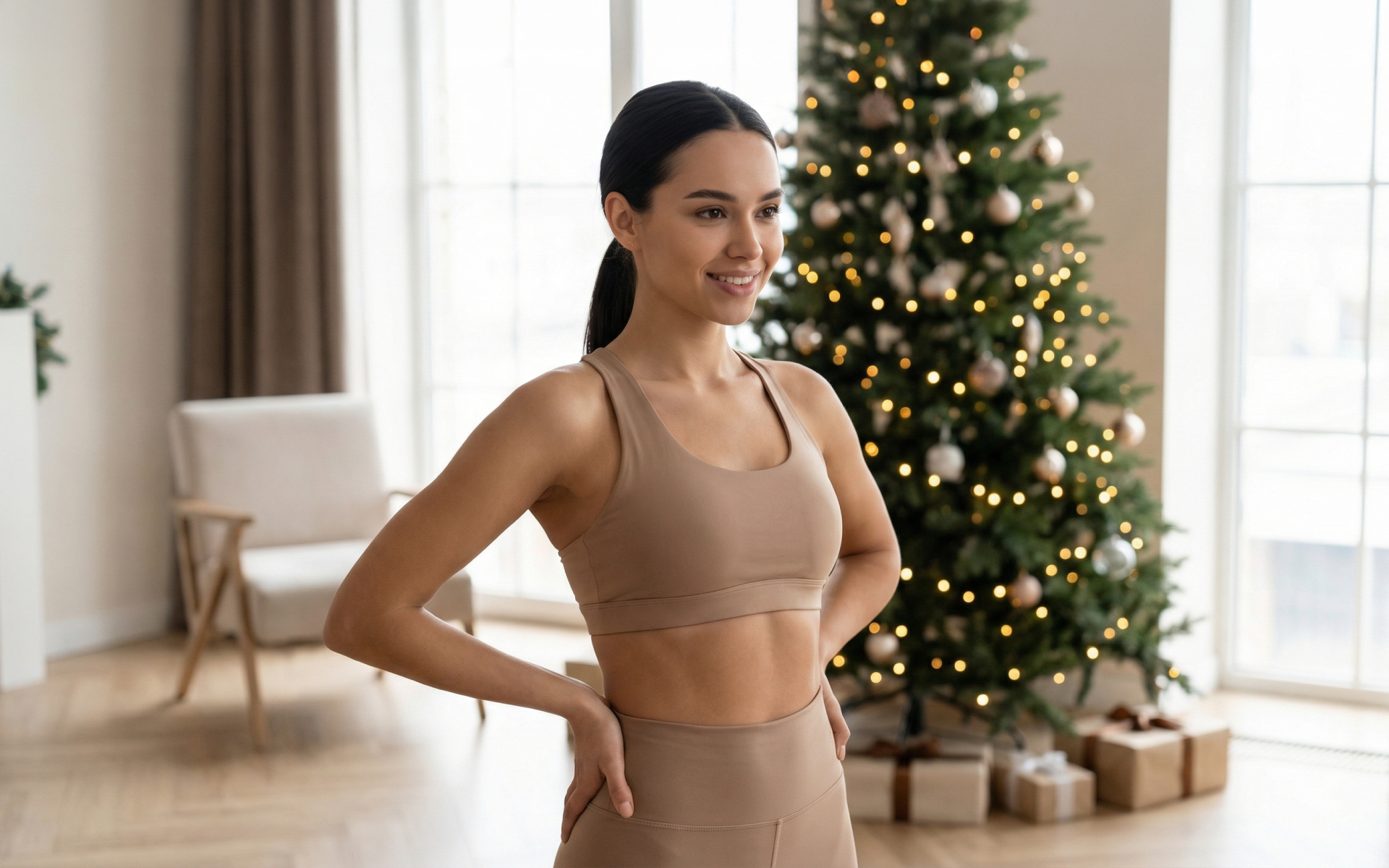By now we all know that working out has numerous benefits. From helping you lose weight, building muscles that give you a lean and trim figure, improving your mood and increasing energy levels to improving sleep, combating health conditions (especially in relation to chronic illnesses), and even putting the spark back in your sex life, the benefits are endless.
If you have been thinking about getting into fitness, but aren’t too sure that the gym is for you, then trying a beginner workout at home without equipment is the best starting point for you. With an easy beginner workout at home without equipment, you are able to familiarize yourself with most exercises and you are able to learn more about how your body moves without the extra resistance of weights.
Non-weighted home workouts are also safer for beginners. They give you a better chance of mastering exercise moves and postures, without hurting yourself using extra weights. If this sounds like something that you would be interested in giving a try, stick around to learn more about how to make a beginner workout plan, how much time you need to spend exercising as a beginner to see results or gain benefits, which workouts to do, and much more.
Get your personalized
meal plan!
How Can A Beginner Start Working Out At Home?
Having a plan is the best way to ensure that you succeed in every new endeavor – including working out. Here are somethings that you should do/have before starting your beginner workout at home without equipment plan
1. Start With Your Why/Goal
Sit with a pen and a book or with your iPad and think about why you are choosing to exercise. Is it to improve your health? Lose those five to 10 pounds that you’ve been saying you’ll lose for the past two years? To finally be able to participate in a marathon? Pick your reason and write it down. This will be your inspiration to keep exercising and eating healthy.
2. Set Up/Dedicate A Spot To Working Out
For those with larger apartments, you could dedicate an entire room to be your workout spot. If you don’t have as much space, a corner of your living room, bedroom or even the balcony is enough. Just make sure that you can move around comfortably without bumping into the wall or furniture. One of the best things about working with just your body is that you do not need much space as you aren’t storing any weights.
3. Pick A Program That You Are Comfortable With And One That Helps You Work Towards Your Goal
This is where a beginner workout plan comes in. As a person new to fitness, you might be tempted to jump straight into the hardest workouts, as you aim to push yourself as hard as you can to reach your goals. This is a terrible idea. When you do this, you are very likely to not only burnout quickly and drop out of your training plan, but to also injure yourself. Start small with an easy beginner workout at home, without equipment and build up on it in the next few weeks/months.
4. Track Your Progress But Do Not Be Obsessive About It
Tracking your progress is a great way to see if your efforts are paying off. However, a downside that many do not consider is being too obsessive about the scale – especially for those on a beginner workout at home without equipment for weight loss plan – can be harmful to them and their mental health. Remember that weight loss, and fitness in general is not linear. Progress takes time and patience.
5. Get An Accountability Buddy
Having a friend or partner who helps you stay on track is a fantastic way to ensure that you don’t get off track and actually put in the work to achieve your goals. If you do not have any family or friends who can be a workout/accountability partner, join online forums, meet people who are working towards the same goals, make friends and have them be your accountability partners.
Read More: Weekly Workout Plan at Home – Reap a Toned and Healthy Body with No Gym Membership
Is 30 Minutes Of Exercise A Day Enough For Beginners?
Yes, it is. While you can, you certainly do not need to spend more than 30 minutes a day working out to reap any benefits.
According to the Physical Activity Guidelines for Americans by the U.S Department of Health and Human Services, working out for 30 minutes a day is enough to keep you in great health and reduce the risk of the many chronic illnesses that affect the majority of the population today (4).
The Centers for Disease Control and Prevention further states that to maintain your current weight, 150 minutes of moderate-intensity exercise – working out 30 minutes a day for 5 days a week – is enough to help you lose weight. If you are looking to lose weight the same 30 minutes are enough, but only if you fix your diet and reduce the amount of calories you’re eating and drinking. Failure to do this means you’ll be working out longer and at a higher intensity (3) – which in the long run is not really sustainable and might not give you the desired result. Exercise plus diet are essential for weight loss.
In a study published in 2012 in The American Journal of Physiology, researchers found that after working out for 30 minutes a day for 30 minutes a day, previously sedentary, overweight men lost about the same amount of weight as men who worked out for an hour a day (1).
So, yes. 30 minutes of exercise a day is enough for beginners to stay healthy, maintain and even lose weight.
Lean and toned up body isn’t just a far-fetched fantasy. Check out the BetterMe app and watch it propel your weight loss journey into high gear!
The Best Exercises For A Beginner Workout At Home Without Equipment For Female
Please note that exercises are not gendered or rather gender/sex specific so if you are looking for a beginner workout at home without equipment for male, the following exercises will work for you too.
Some of the best and easiest to do home workouts that do not include equipment include:
- Cardio – These include running (at a park, around your home, or in place), walking (slowly or briskly), jogging, jump rope (if you do not have a rope, simulating the movement with your hands works too), jumping jacks, etc.
- Full body bodyweight exercises – Squat jumps, walking lunges, pull ups, push ups, kickboxing, bear crawls, handstands, burpees, mountain climbers, planks, etc.
FAQs
Is 10 Minutes Of Exercise Enough For Beginners?
Yes, and no.
10 minutes of exercise is certainly better than not working out at all and just living a sedentary lifestyle. However, if you are looking for a real and long-term change in your health or weight, 10 minutes just won’t cut it.
As mentioned above, 30 minutes of exercise a day are the minimum advised for people to do. If exercising for 30 straight minutes is too much for you, try breaking your exercises into 10 minute sessions of continuous moderate activity three times a day. This will get you to the minimum requirement of 30 minutes without overwhelming you.
What Can 15 Minutes Of Exercise Do For You?
As stated above, 30 minutes of exercise is the best if you want to see real changes. However, if you can only spare 15 minutes to workout, then go on and get that workout in.
According to the American College of Sports Medicine, just 10 to 15 minutes of exercise is a great starting point for anyone who has been inactive for a long time (2). Remember, it’s always better to start small than to push yourself too far. Exercising for just 15 minutes is also a fantastic way to improve your mental and cardiovascular health. Especially if you give your all during those 15 minutes.
The Bottom Line
A beginner workout at home without equipment plan is the easiest thing to do. With a little motivation, discipline, and some extra space in your house, you can reach your goals in no time. Remember to start small, pace yourself, and above all, fix your diet if you’d like to see some real changes. If you have any chronic illness, please be sure to first speak to your doctor to ensure that you are being safe and won’t harm yourself.
DISCLAIMER:
This article is intended for general informational purposes only and does not serve to address individual circumstances. It is not a substitute for professional advice or help and should not be relied on for making any kind of decision-making. Any action taken as a direct or indirect result of the information in this article is entirely at your own risk and is your sole responsibility.
BetterMe, its content staff, and its medical advisors accept no responsibility for inaccuracies, errors, misstatements, inconsistencies, or omissions and specifically disclaim any liability, loss or risk, personal, professional or otherwise, which may be incurred as a consequence, directly or indirectly, of the use and/or application of any content.
You should always seek the advice of your physician or other qualified health provider with any questions you may have regarding a medical condition or your specific situation. Never disregard professional medical advice or delay seeking it because of BetterMe content. If you suspect or think you may have a medical emergency, call your doctor.
SOURCES:
- Body fat loss and compensatory mechanisms in response to different doses of aerobic exercise—a randomized controlled trial in overweight sedentary males (2012, journals.physiology.org)
- Exercise for the Apparently Healthy, Inactive Person (n.d., exerciseismedicine.org)
- Physical Activity for a Healthy Weight (2022, cdc.gov)
- Physical Activity Guidelines for Americans (n.d., health.gov)
